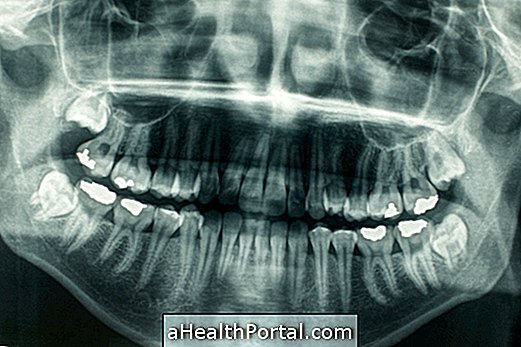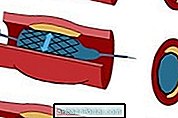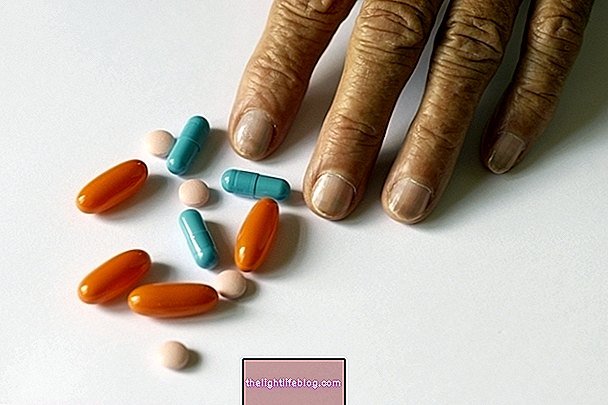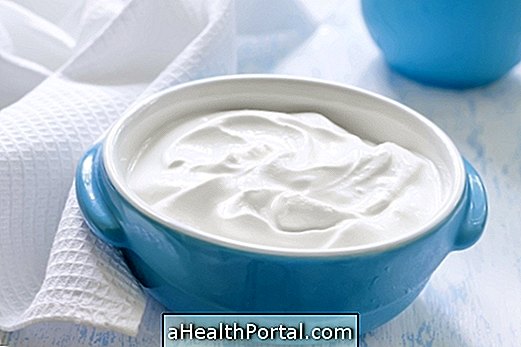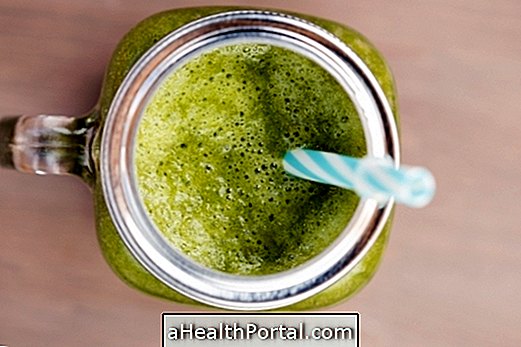Some diuretics with natural active ingredients can be found in capsules such as Asian Centella or horsetail that serves to combat fluid retention helping to deflate and so are also popularly known for weight loss.
However, although diuretics favor elimination of urine, combating bloating, do not burn fat, but as water also weighs, it is normal to have a weight reduction on the scale and clothes can get looser because body volume decreases.

Examples of natural diuretics and how to take
Some examples of natural diuretic medicines that can be found in pharmacies and drugstores are:
- Asian Sparkle: It is a plant that acts as an anti-inflammatory and stimulant of blood circulation. It is advised to take 1 or 2 capsules up to 3 times a day in the main meals.
- T_Sek: Contains pineapple, hibiscus, maté tea, white tea, green tea, collagen and lemongrass. To take just dilute 1 sachet in 400 ml of water and take at any time of day.
- X-pel: Contains green tea extract and guarana seed. You can take 4 capsules per day.
- Drenative: It has extract of green coffee and pineapple and also has thermogenic action that burns fat. Take 1 capsule daily.
- Carqueja: Can be found alone or in combination with other plants with draining action, purifies the body and reduces toxins in the blood. Just take 2 capsules per day.
- Horsetail: It is an excellent diuretic and natural anti-inflammatory that assists in the process of slimming. Take at most 3 times a day.
- Hibiscus: Helps in the elimination of toxic substances and accumulated fluids in the body. Take 500 mg 1 to 2 times a day.
- Dandelion: Increases urine output being great against urinary infection as well. Take 1 to 3 capsules per day.
- Sacral shell: Besides the diuretic action, it is stimulant and laxative. Take 1 or 2 capsules per day.
- Green Tea: It has antioxidant substances, flavonoids and catechins, and besides the diuretic action also helps in burning fat. Take 1 capsule in the main meals.
Diuretics when used in excess may promote dehydration and so whenever you take a diuretic you should increase your water intake because your body eliminates a greater amount of fluids and toxins.
When to take diuretics
Diuretic, even natural remedies, should only be used under the guidance of a physician or dietitian, and may be used for:
- Eliminate excess body fluids during PMS after a day of overeating like a day after going to a barbecue, for example;
- Regulate blood pressure because it decreases excess water, facilitating the passage of blood through the arteries;
- Combat cellulite because one of the factors of its permanence is the water retention;
- For prevention and treatment of urinary tract infection because as much urine does, more bacteria from the urethra will be eliminated;
- Fight the swelling of the legs and the feeling of tired or heavy legs due to varicose veins;
- Fight lymphedema, which is the swelling that comes after doing some surgery.
Usually diuretics act directly on the kidneys preventing water from being reabsorbed by the body and thus it is eliminated through the urine. A great way to potentiate a diuretic is to take at least 40 minutes of physical activity right after it is taken because muscle contraction stimulates the bloodstream, bringing more water to the kidneys.
When not taking diuretics
Diuretic, although natural remedies are not recommended for people who have hypertension and who already take medicines to control blood pressure, and for people who have some heart alteration because in these cases can be harmful to health. Diuretics are also contraindicated during pregnancy and during breastfeeding.
Side effects that may occur
When taking diuretics, even if they are natural, symptoms such as lack of potassium in the blood, low sodium concentration, headache, thirst, dizziness, cramps, diarrhea, and increased cholesterol may occur.



